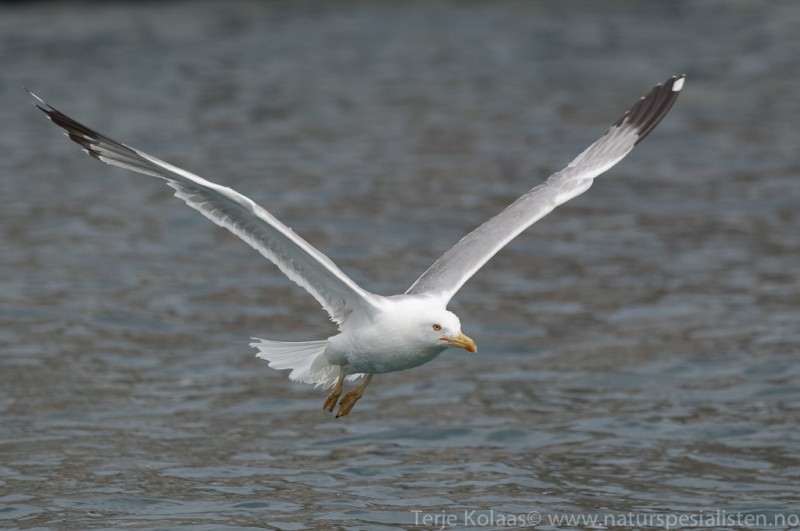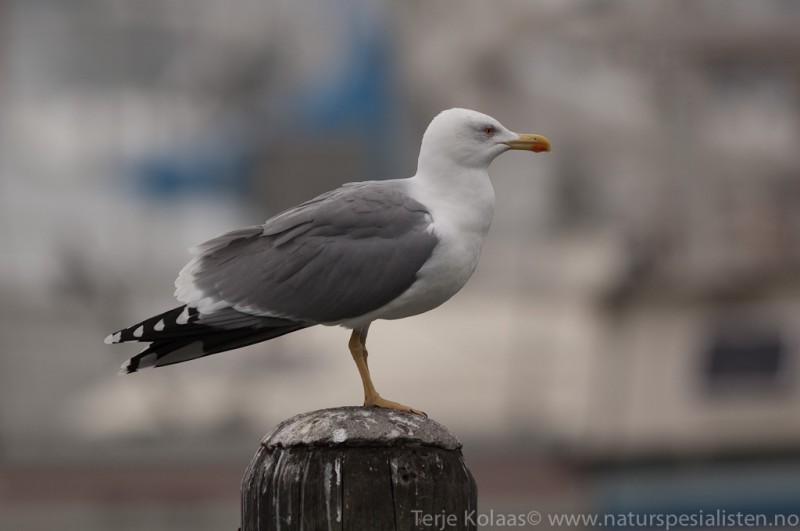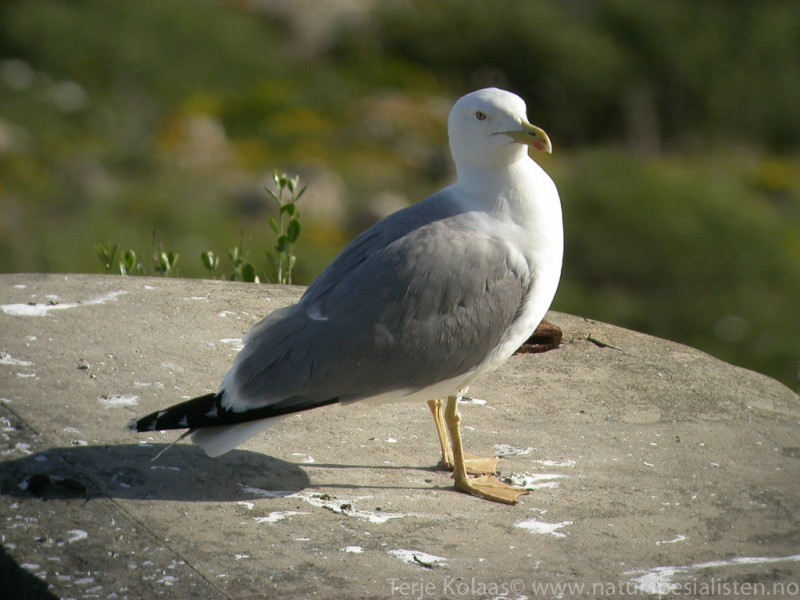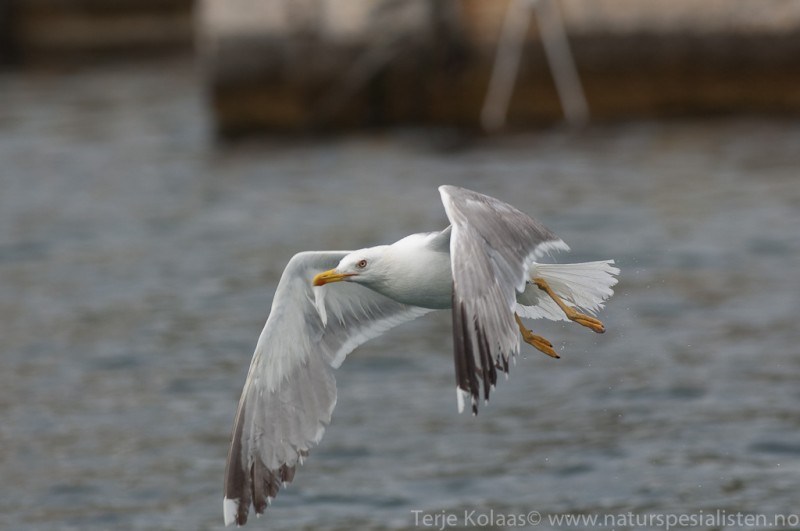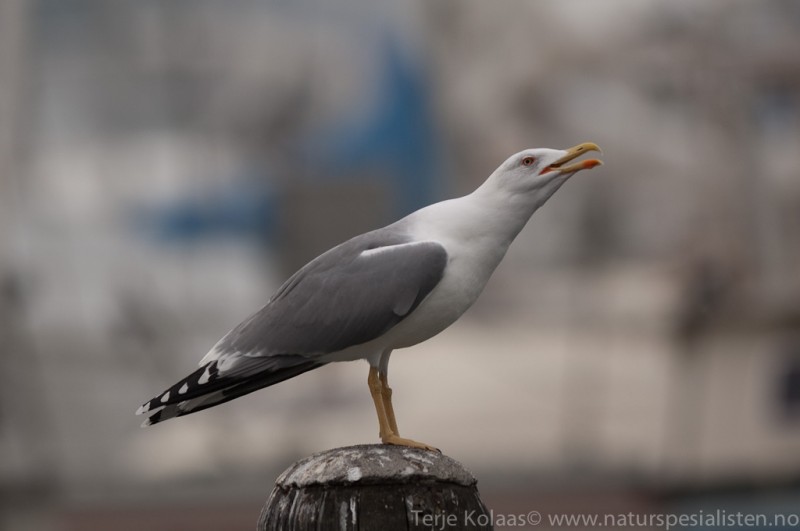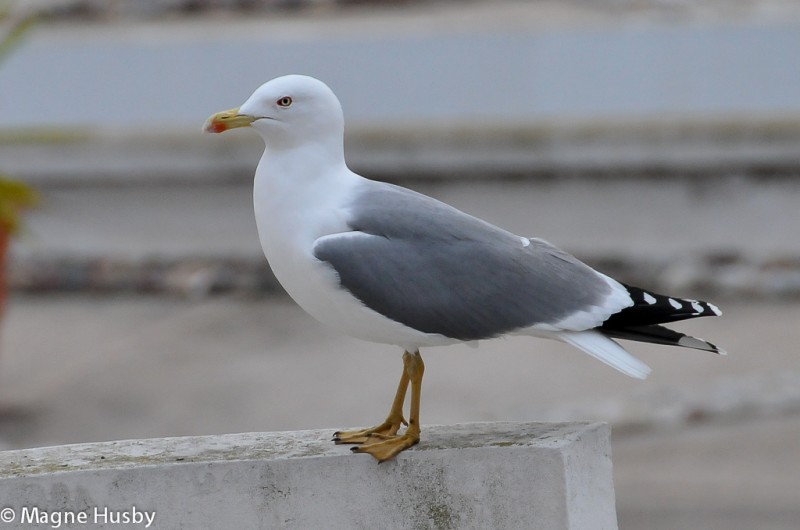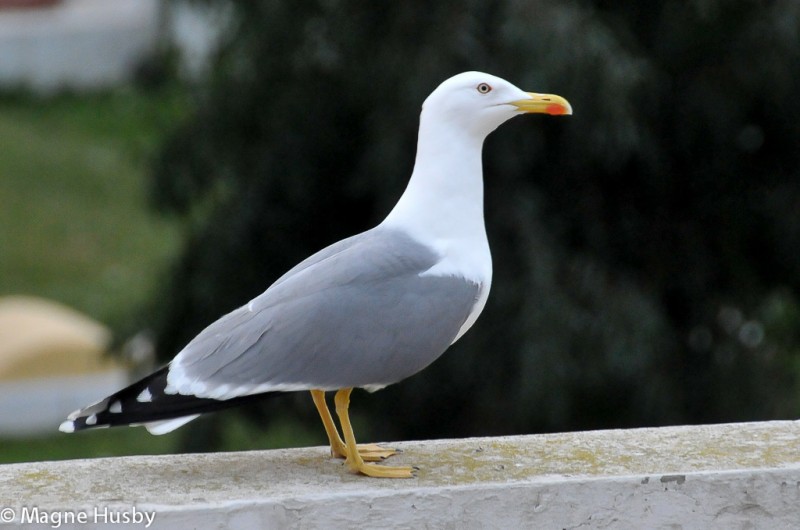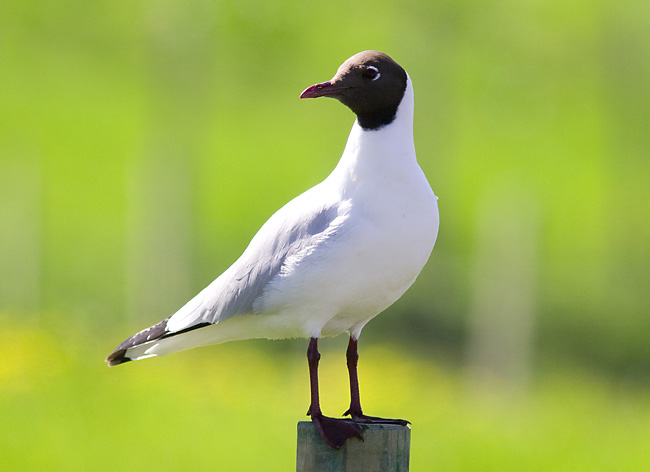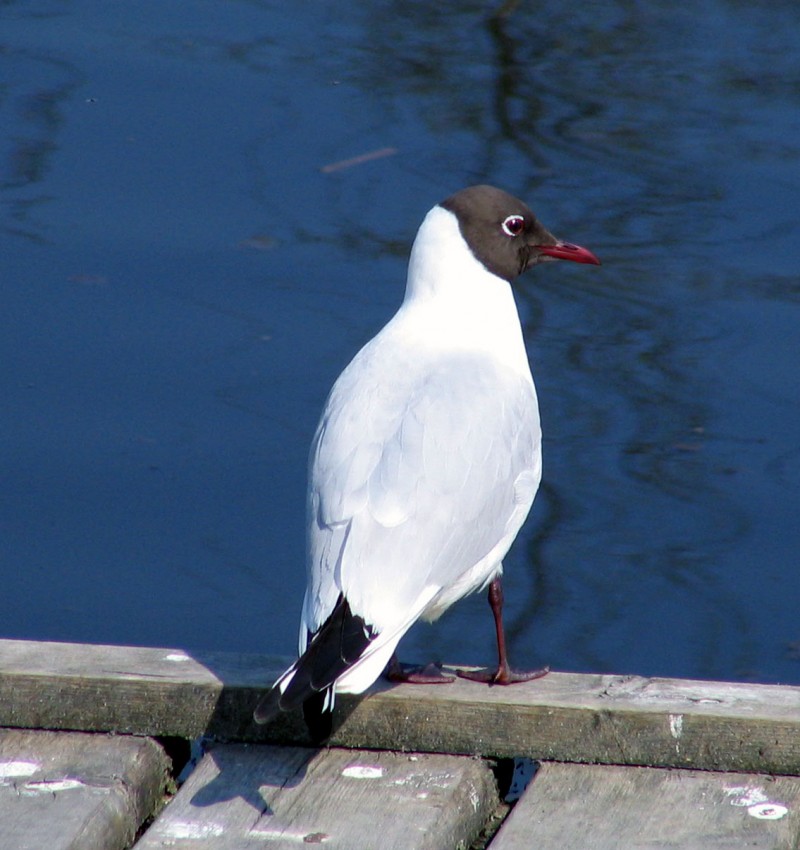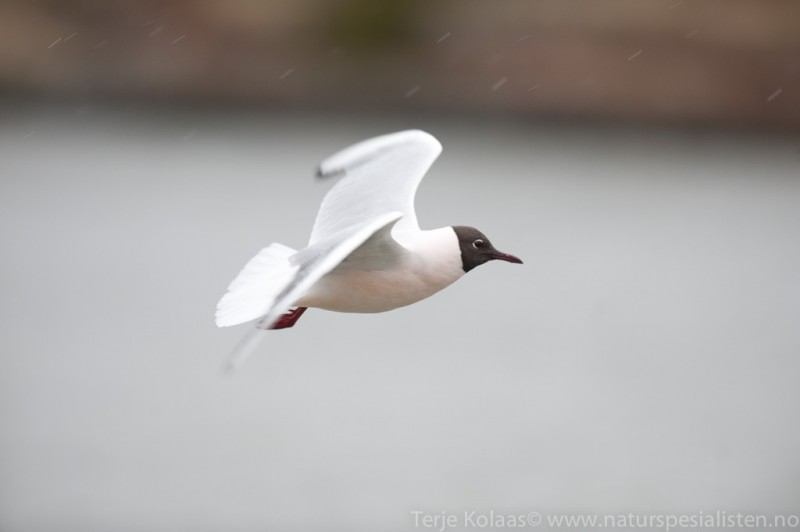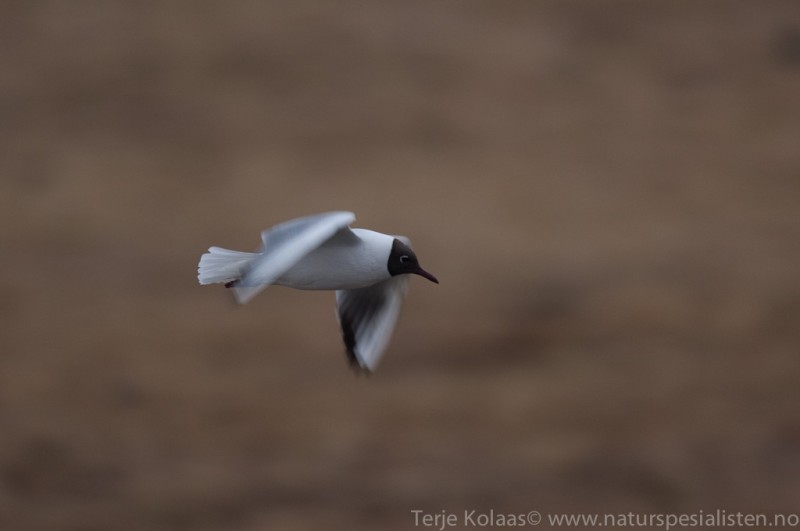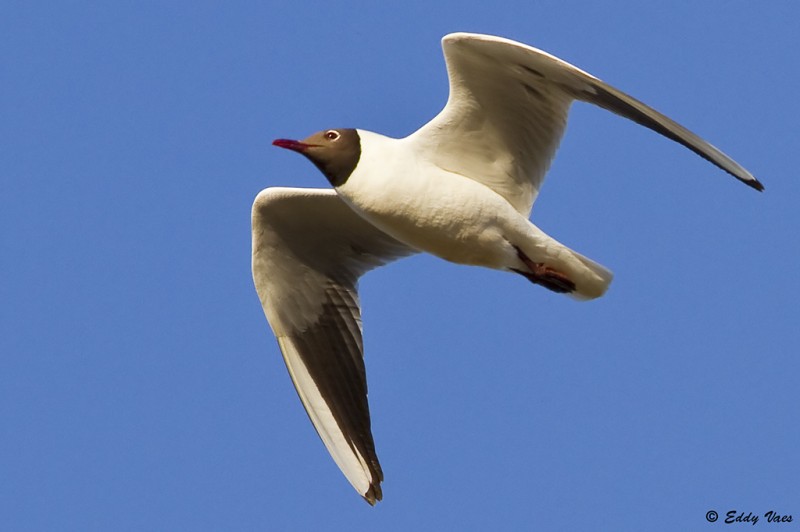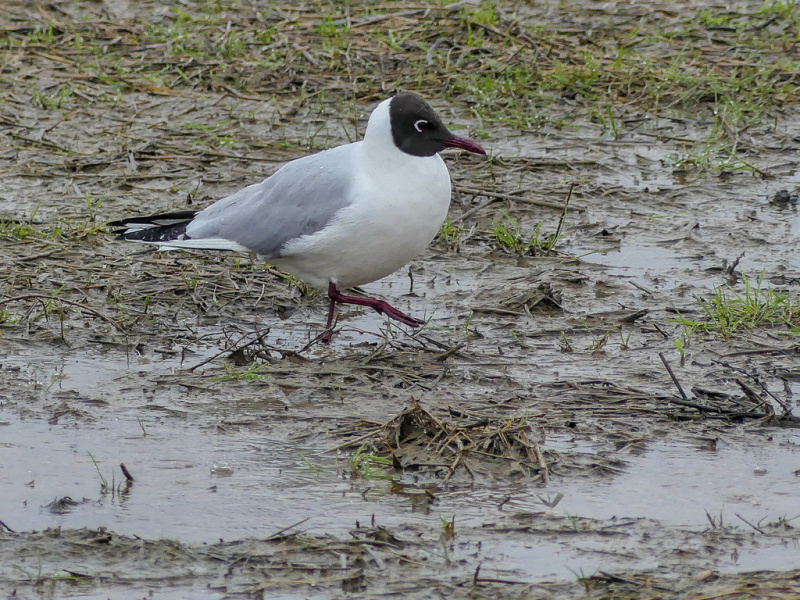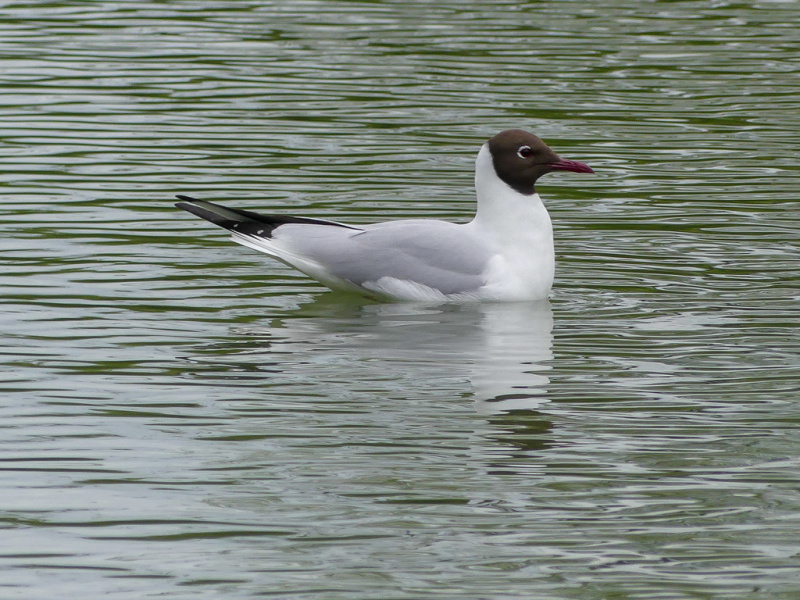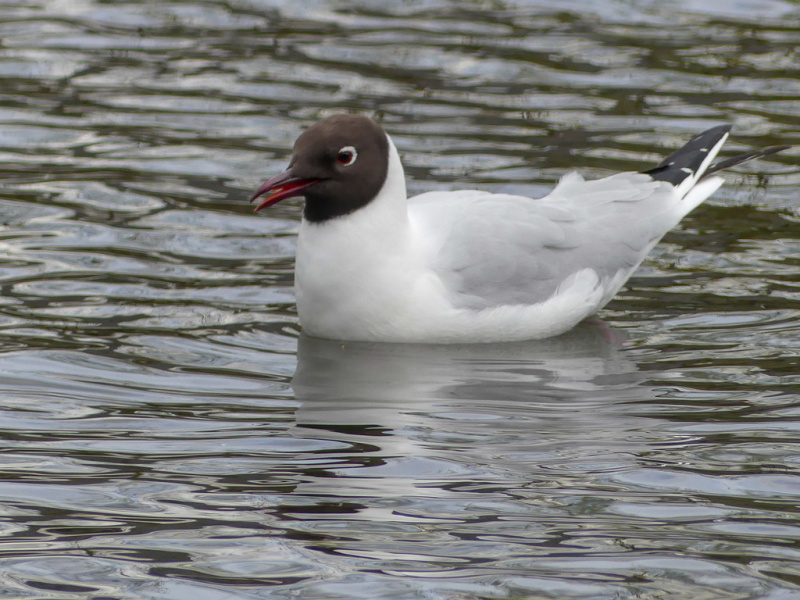Yellow-legged Gull (Larus michahellis)
Black-headed Gull (Chroicocephalus ridibundus)
Very similar to Herring Gull, and not always possible to identify with certainty. Generally thicker neck, rounder head and longer wings than Herring Gull. Adults: Silvery upperparts, bright yellow legs (beware that it is not uncommon for Herring Gull to have yellow legs!), and more black and less white in wing-tips. Bill heavier than H.G. with markedly curved tip. Orbital ring red, not orange. Big, red gonys spot, often extending to upper mandible. Marked gonys angle. Primary feather P5 (counted from innermost feather in gulls) usually with broad, black band. In winter plumage head is less streaked than in H.G., and often completely white. Immatures first winter: Pale belly and head. Dark underwings with blotchy markings. Only vague pale window of inner primaries, and well defined, wedge-shaped tail-band. Dark base of bill. For a detailed account of all plumages see Gull Research.
Sound:Voice more nasal than Herring Gull, but ID by sound difficult.
Distribution:Wikipedia: map (se also Xeno-canto below)
Ecology:Birdlife ecology
Links:
Observation.org Latest observations
Image search Flickr NB! May give other species
CCChocolate-brown hood in adult plumage (seemingly black at a distance), but head only with dark markings in winter and juvenile plumages. Underparts of inner primaries dark grey. First few primaries white with black tip, both on upper side of wing and under. Last character conspicuous in all plumages, but slightly less obvious in juveniles due to larger dark area of wing-tip. Slender-billed Gull and Bonaparte's Gull show similar white first primaries, but differs in long and slender head profile and white underparts of hand respectively.
Sound:Quite vocal, especially at breeding ground. Distinct, harsh calls. A rasping "kreearr", and shorter, sharp warning calls; "kek".
Contact call:
Distribution:
Xeno-canto: map
Ecology:Birdlife ecology
Links:
Observation.org Latest observations
Image search Flickr NB! May give other species
CC
 English
English Albanian
Albanian
 Armenian
Armenian
 Bulgarian
Bulgarian
 Catalan
Catalan
 Croatian
Croatian
 Czech
Czech
 Danish
Danish
 Dutch
Dutch
 Finnish
Finnish
 French
French
 Georgian
Georgian
 German
German
 Greek
Greek
 Hungarian
Hungarian
 Italian
Italian
 Latvian
Latvian
 Lithuanian
Lithuanian
 Macedonian
Macedonian
 Norwegian
Norwegian
 Polish
Polish
 Portuguese
Portuguese
 Romanian
Romanian
 Russian
Russian
 Sami : Lule sami
Sami : Lule sami
 Sami : North sami
Sami : North sami
 Sami : South sami
Sami : South sami
 Scientific names
Scientific names
 Serbian
Serbian
 Spanish
Spanish
 Swedish
Swedish
 Ukrainian
Ukrainian

